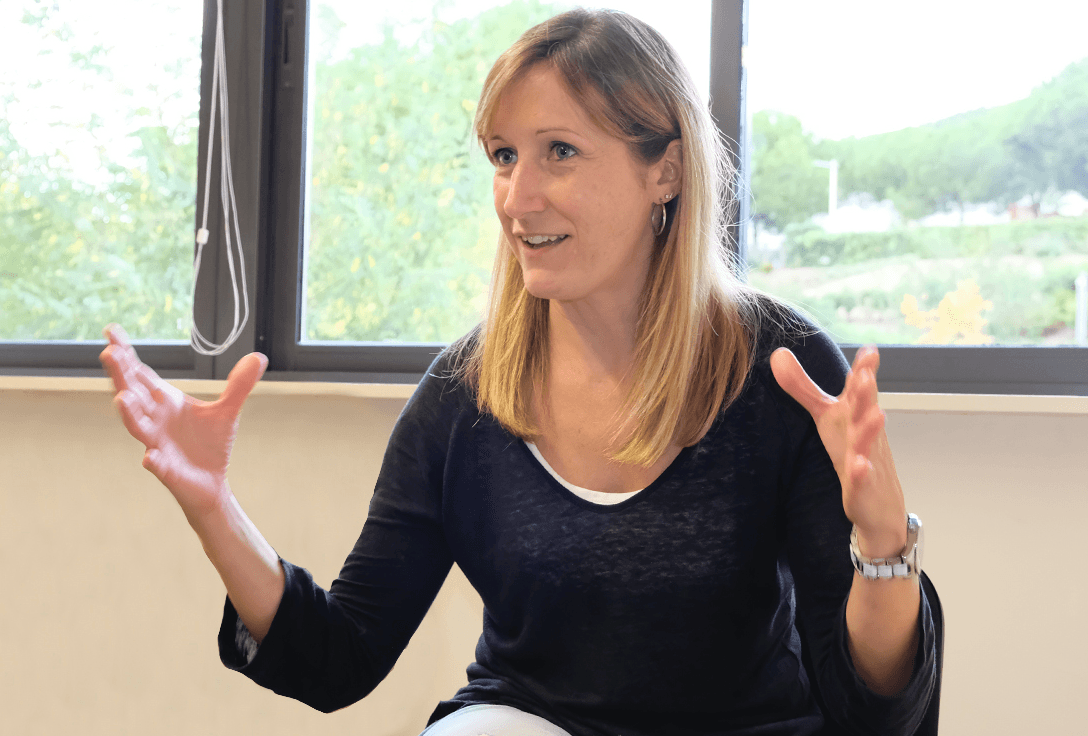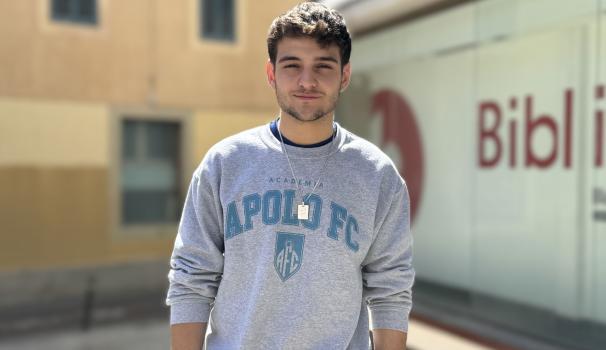April 29, 2024

"What is the role of a speech and language therapist with singers?", we talk about it with professor Marta Jordana
With the start of the TV show Operación Triunfo (OT) (produced by Gestmusic) on Prime Video, we've been wondering: "What is the function of a speech and language therapist with singers?". We wanted to talk about it with the coordinator of the Bachelor degree in Speech and Language Therapy, Marta Jordana.
Professor Marta Jordana is a speech and language therapist, the coordinator of the Bachelor degree in Speech and Language Therapy and a specialist in voice disorders. She was the speech and language therapist in the first edition of the Operación Triunfo Academy, under the direction of Nina, where she worked with singers such as Chenoa, David Bisbal and David Bustamante. She has also worked as a clinical speech and language therapist specializing in voice and speech disorders in hospitals such as Vall d'Hebron and Hospital Clínic.
What is the function of a speech and language therapist with singers?
A speech and language therapist basically has two functions when it comes to professional singers. One is to treat any vocal problems they may have, and the other relates to prevention. Our role is to provide tools to prevent possible disorders that may appear in the voice.
What do you mean when we talk about prevention? Why is it so important?
The vocal cords are primed for speaking and singing. However, when it comes to a more professional level, the hours of voice use, the conditions, or the interpretation of songs in registers in which you are not accustomed to singing increase. This means you have to do “different voices” and that is more difficult. All this can lead to the appearance of small traumas in the vocal cords that can result in a voice problem. In this prevention phase, a speech and language therapist's job is to provide tools, strategies, exercises and help to become aware of vocal overexertion.
It is often the singers themselves who indicate that they feel discomfort when they sing and know that this can be risky. We address this with voice and body awareness exercises and other things.
What kind of techniques do you use?
There are a lot of techniques and more and more are being developed. It is very fashionable to name methods and techniques, but in simplified terms, I would speak of awareness as the pillar of all our work. Awareness can help the person to identify the level of effort they exert when singing, to pay attention to their vocal and body gestures, to know when to tense the voice and also be guided by the sound.
In addition, as speech and language therapists, we have the knowledge of the anatomy and physiology of the voice, the functioning of each of the parts of the phonatory system, the dynamics of body gestures in the vocal performance and how alterations of the mucosa of the vocal cords or the tension of the different muscles can interfere in the final result of the voice. This means we can guide singers to make better vocal movements and on how to use the body to enhance their voices.
It is a week since Operación Triunfo began. You were the speech and language therapist in the first edition of the show. The contestants are people who are just now starting to sing professionally, and the standard is very high. How should these singers prepare? How did you do it?
At that time, when I was there, it was seeing how the singer was managing their phonatory system with the kind of repertoire they were being given. They sing songs that they are not used to performing, and they do it for many hours a day at a very high intensity. And what's more, there was also a factor of stress, of attention. Our goal as speech and language therapists was to help them reduce all these elements of stress and tension that end up affecting their voice.
How do nerves or stress affect the voice?
When you are nervous, the diaphragm and the larynx, among others, become tense. Therefore, our role as speech and language therapists was to help reduce these elements of tension by making use of manipulation, relaxation or awareness techniques. We also "trained" the cords to learn to make, with awareness, all the necessary movements to be able to perform all the repertoire requirements, from a technical, register and vocal style point of view.
So, do emotions play a big role in our singing voice?
Emotions are hugely influential. In fact, we define the voice as "the filter of emotions", it is our letter of introduction, since it is something we cannot hide. With the voice and non-verbal language we can perceive the feelings of other people. When we are not doing well emotionally, we close our voice, constricting it. We tighten our jaw when we are angry, our tongue also tends to retract a lot. All this generates is a restriction of the free movement of the vocal cords and resonance. So, something super important, if there is an emotional factor, no matter how much we use techniques, this cannot be eliminated. The voice will be under tension and at risk of injury.
Finally, what would you say to someone who is studying speech and language therapy and wants to pursue a career related to the voice or working with singers?
I am passionate about this world. It is fortunate when you choose a caring profession, when you want to help other people, and you can also combine it with this artistic side. For me, it is hugely satisfying, because you end up helping these people in their profession, but you also make them do it in a healthy and comfortable way. It is very satisfying. Make your passion your profession.
- Share:



